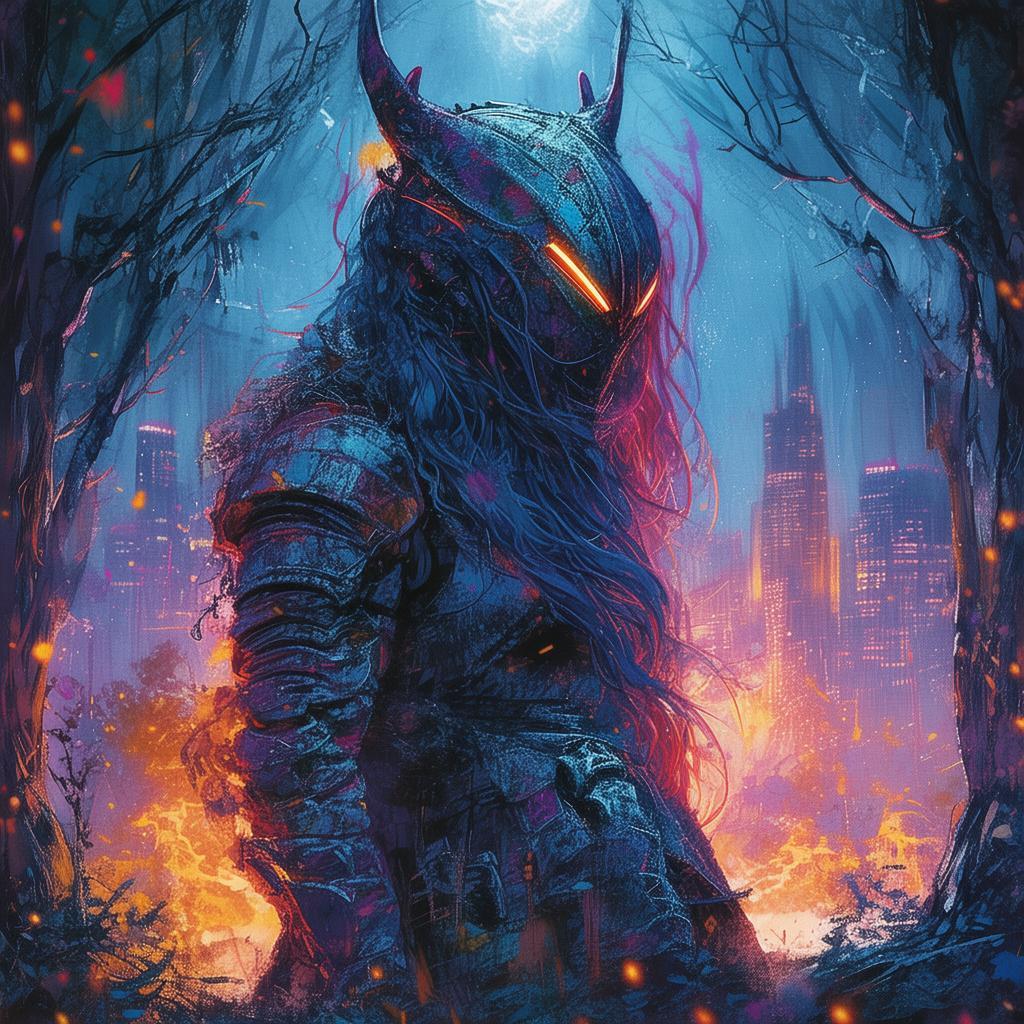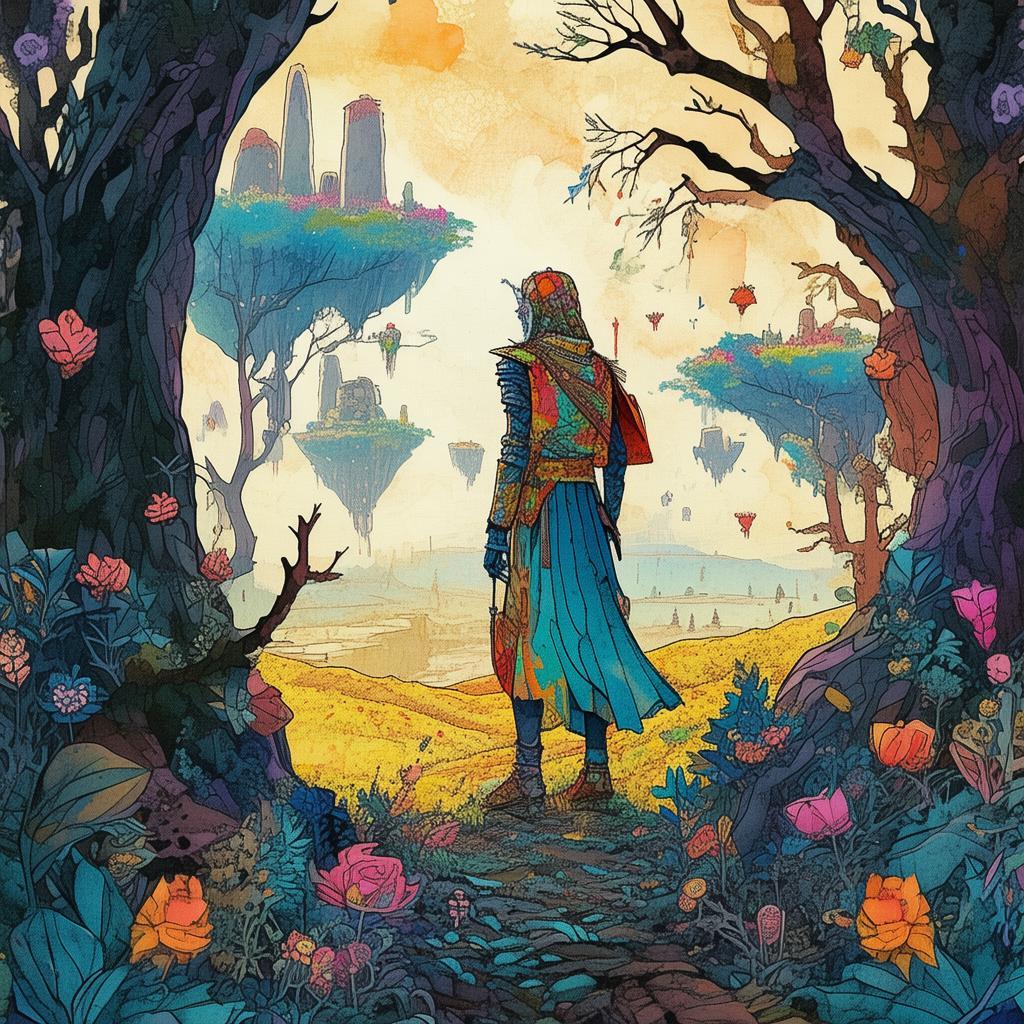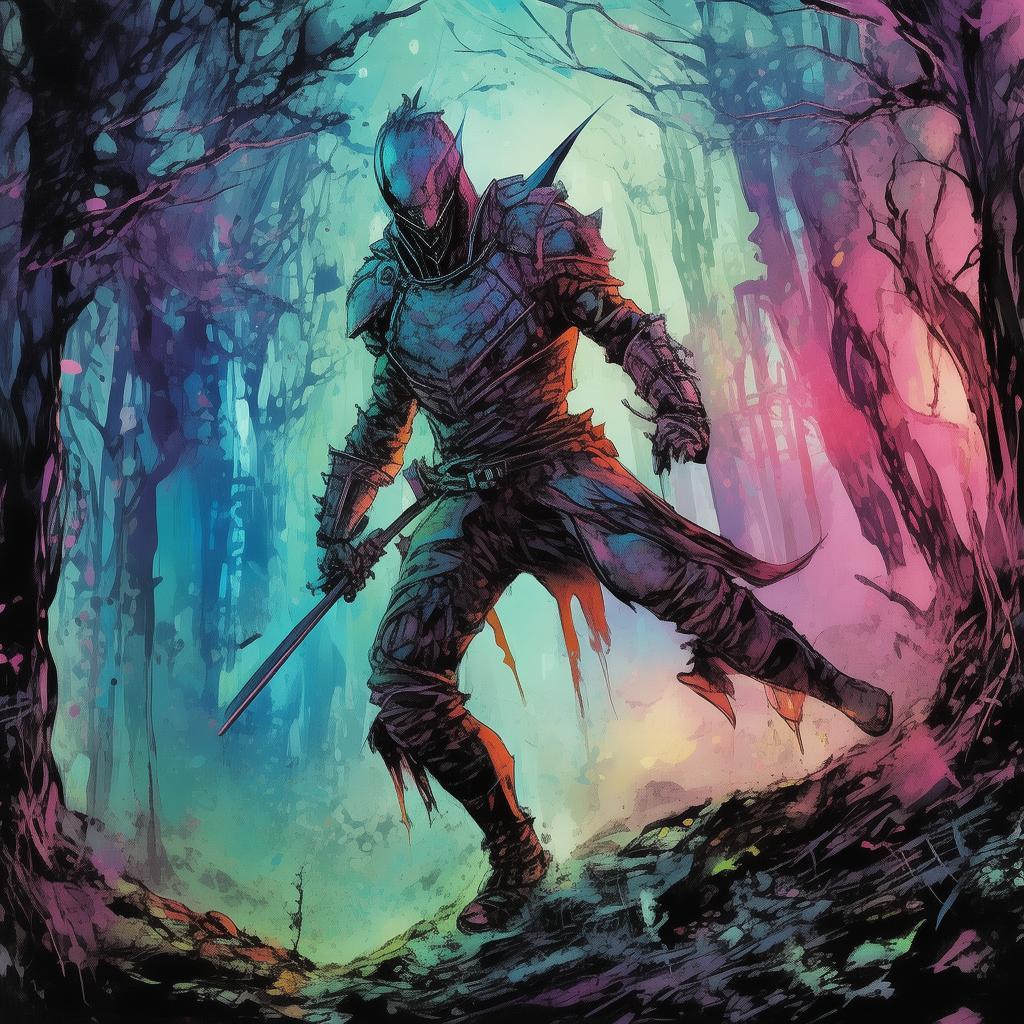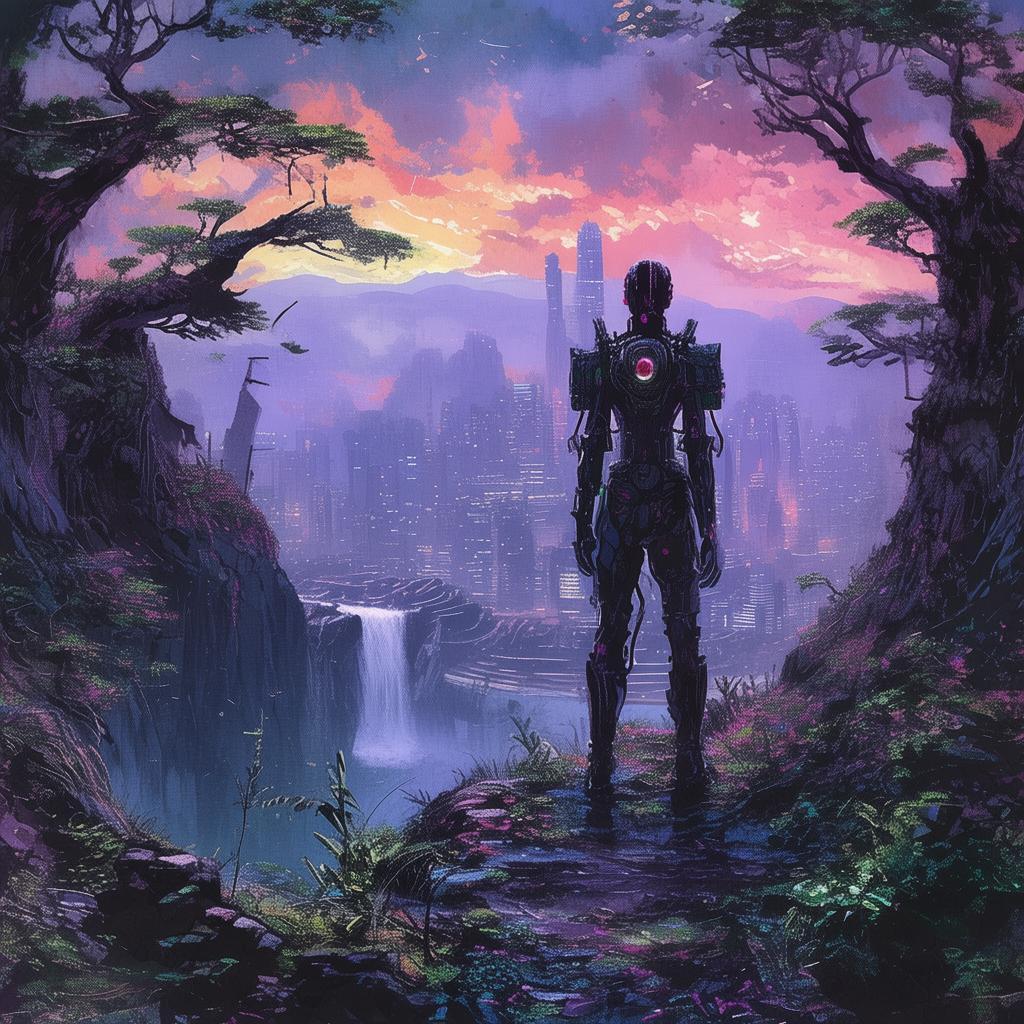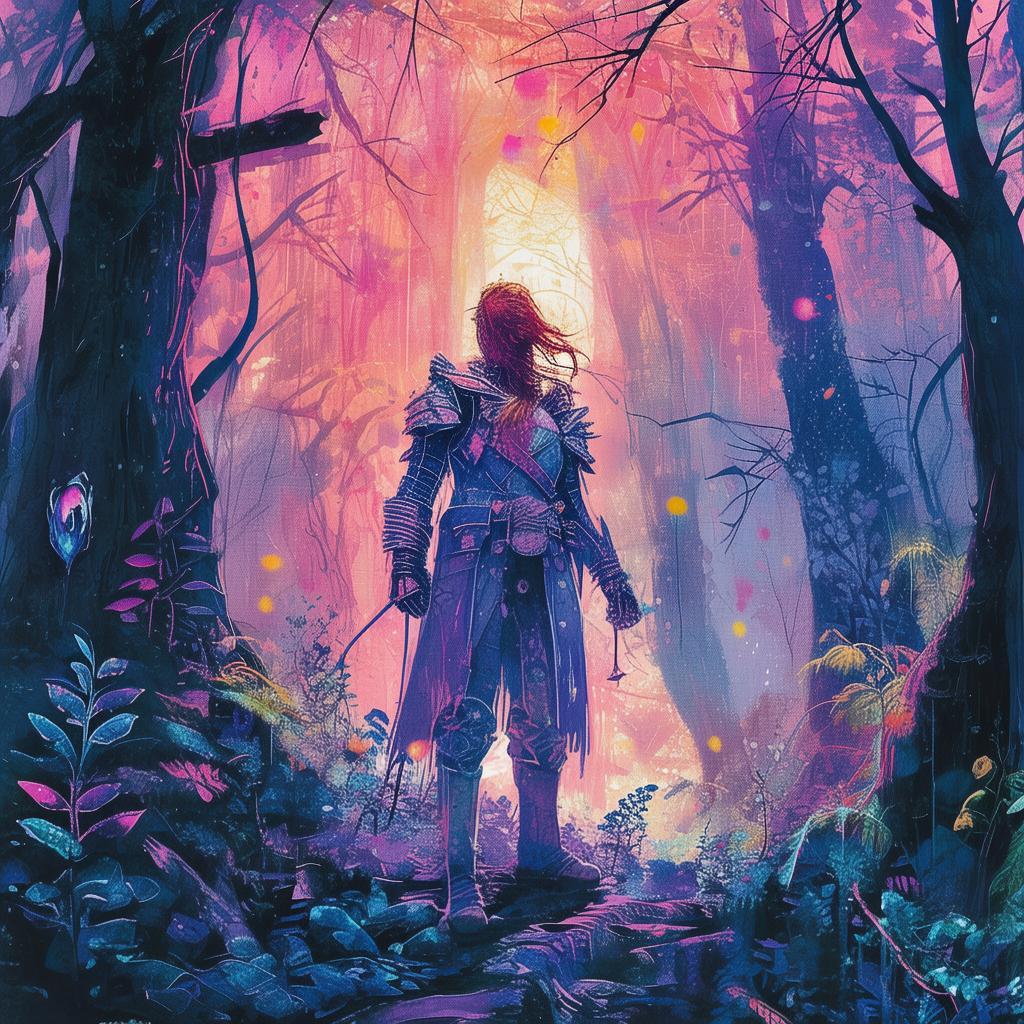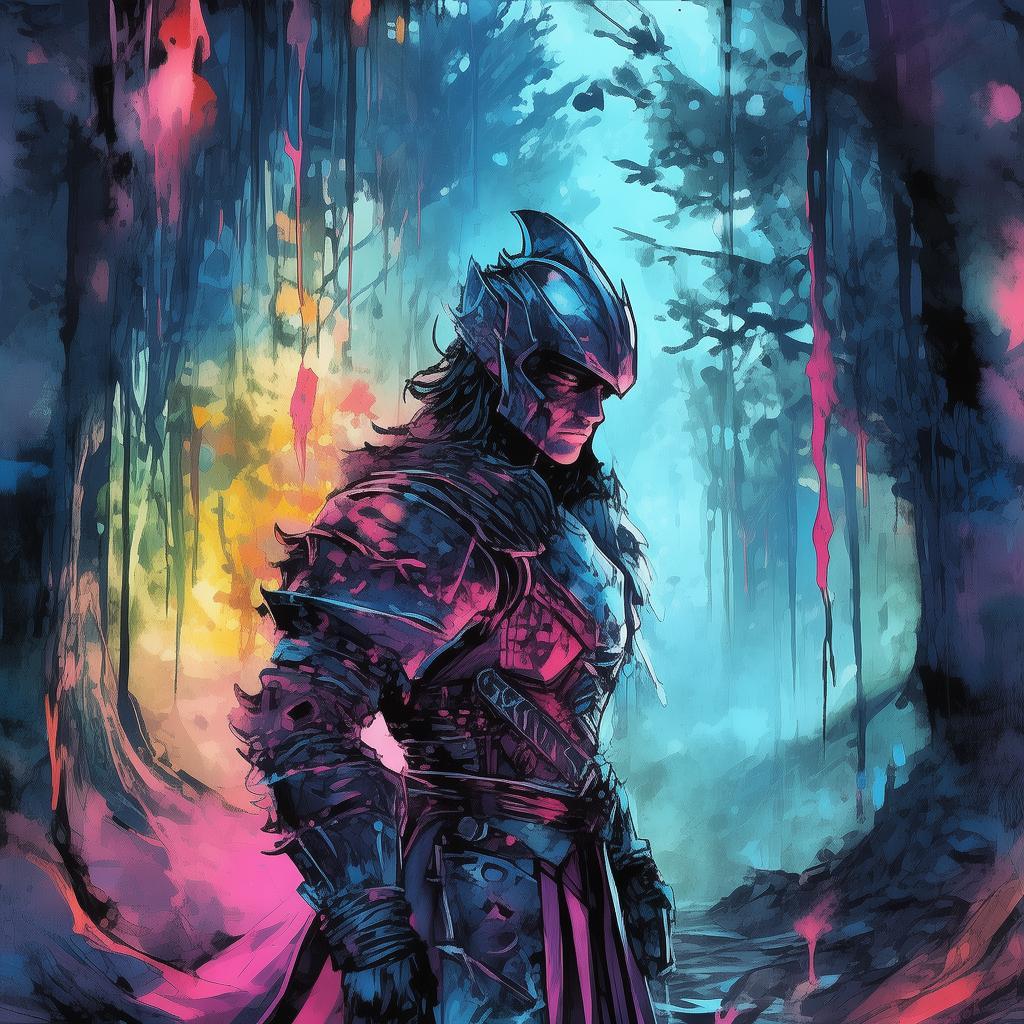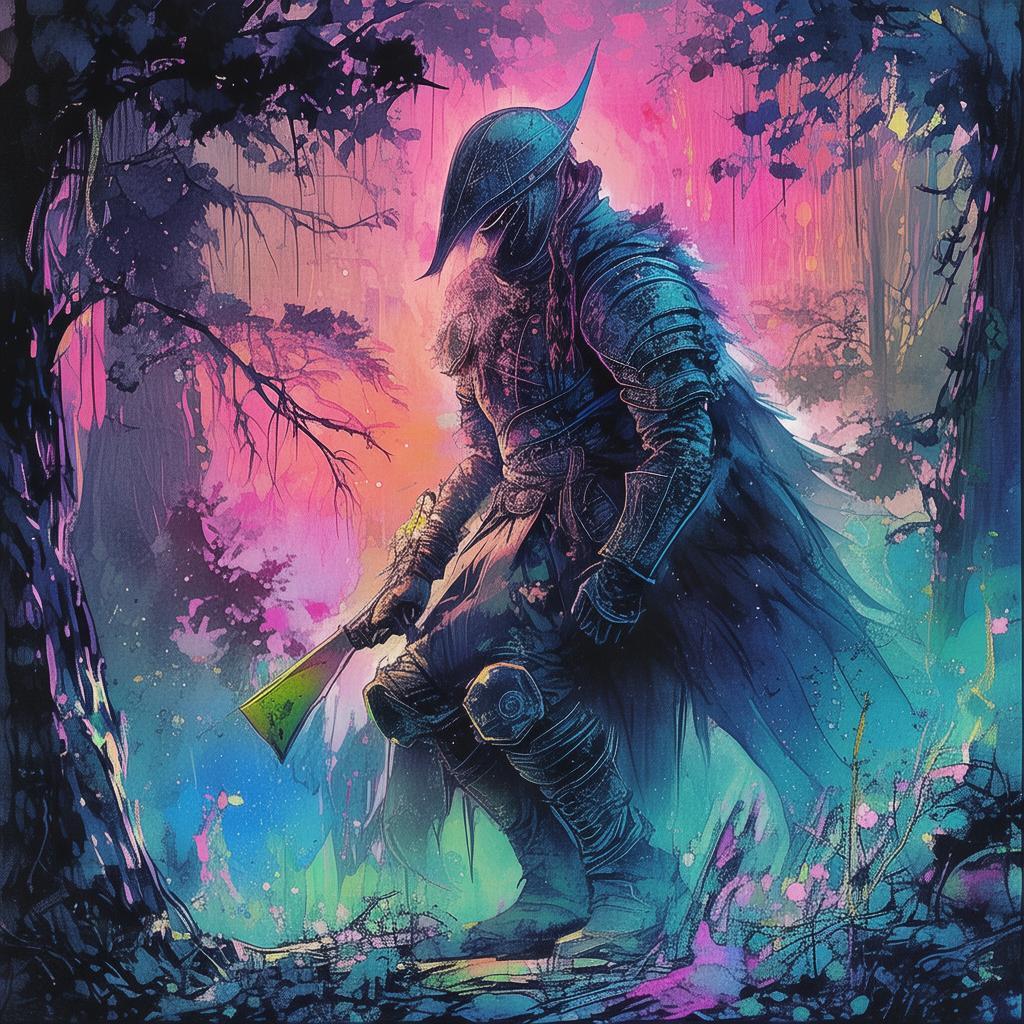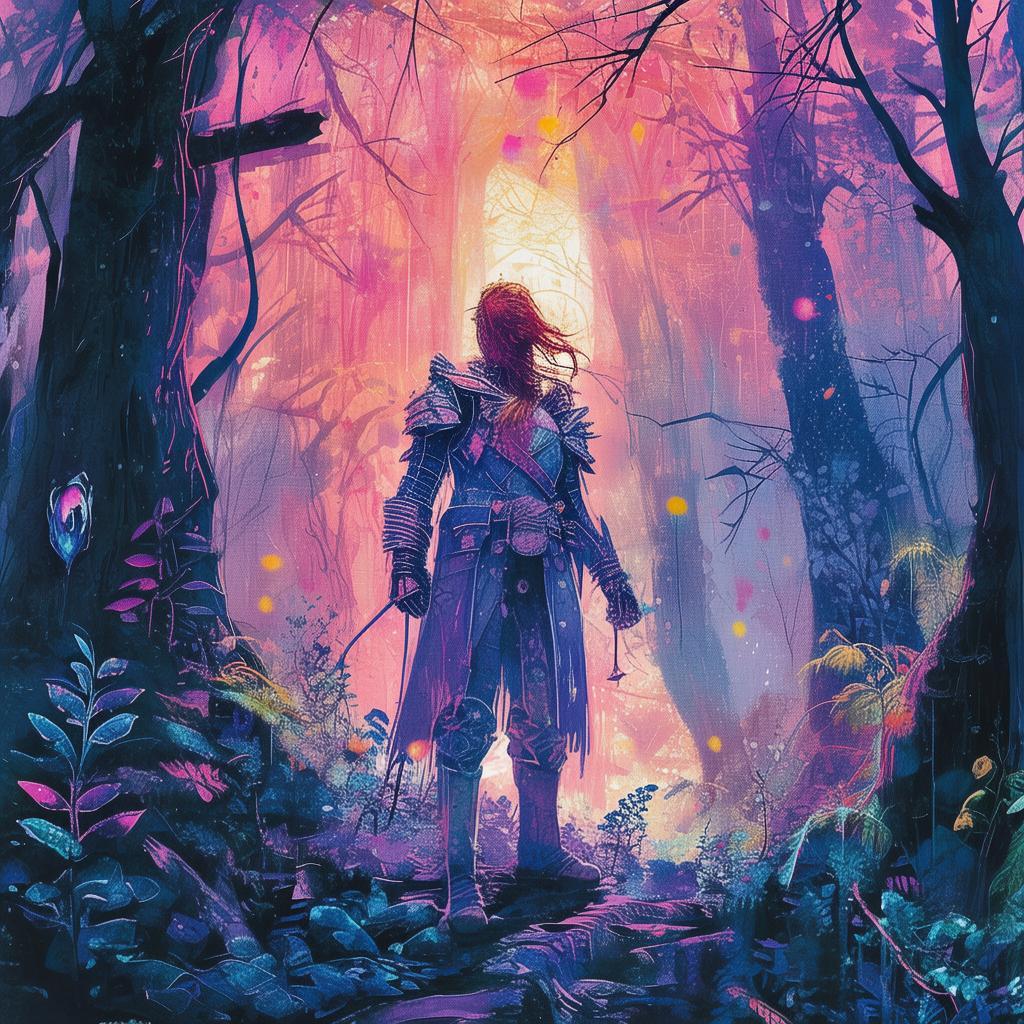The Dreamweaver's Lament: The Echoes of the Dystopian City
In the heart of the Dystopian City, where the sky was perpetually gray and the streets were lined with the echoes of sorrow, lived a Dreamweaver named Elara. Her hands, capable of weaving the fabric of dreams, were the only thing that could pierce through the oppressive reality that shrouded the city. The dreams she wove were currency, traded for the necessities of life in a world where the future was written in the stars and the past was a distant memory.
Elara's dream was simple yet grand: to alter the city's fate, to weave a dream that would bring hope and change to the lives of the people who suffered under the heavy hand of the ruling elite. She had heard the whispers of the old ones, the Dreamweavers who came before her, who had tried and failed to change the course of the city's destiny. But Elara was determined. She believed that her dream could break the chains of the Dystopian City's hopelessness.
The city's dreams were like a tapestry, each thread representing the collective thoughts and emotions of the inhabitants. Elara spent her nights in the Dreamweaver's Tower, a place of ancient wisdom and forgotten magic, where the dreams were woven and the prophecies were kept. She studied the patterns, the symbols, and the stories that had been passed down through generations. She sought the one dream that could change everything.
One night, as Elara delved deeper into the city's dreams, she encountered a vision unlike any she had ever seen. It was a vision of a new city, one that was vibrant and alive, where the people were free and the skies were clear. The vision was beautiful, but it was also a warning. The Dreamweaver's Thread, the source of her power, was fraying. If she did not act soon, the dream would unravel, and with it, the city's hope.
Desperate, Elara sought the advice of the city's elders, the keepers of the prophecies. They told her of a prophecy that spoke of a Dreamweaver who would come to alter the course of the city's destiny. They believed that Elara was that Dreamweaver, but they also warned her that the path to change would be fraught with danger and that she would have to make sacrifices that she might not be willing to make.
Elara knew that she had to act. She began to weave her dream, using the threads of the city's collective hope and despair. She worked tirelessly, her hands moving with a grace that belied the urgency of her task. But as the dream took shape, it began to consume her. She felt the weight of the city's dreams pressing down on her, and she realized that the change she sought would come at a great personal cost.
One day, as Elara was deep in her work, she was interrupted by a young man named Kael. He was a street urchin, his face etched with the lines of struggle and his eyes filled with a fire that belied his youth. He approached her with a request, a request that would change everything.
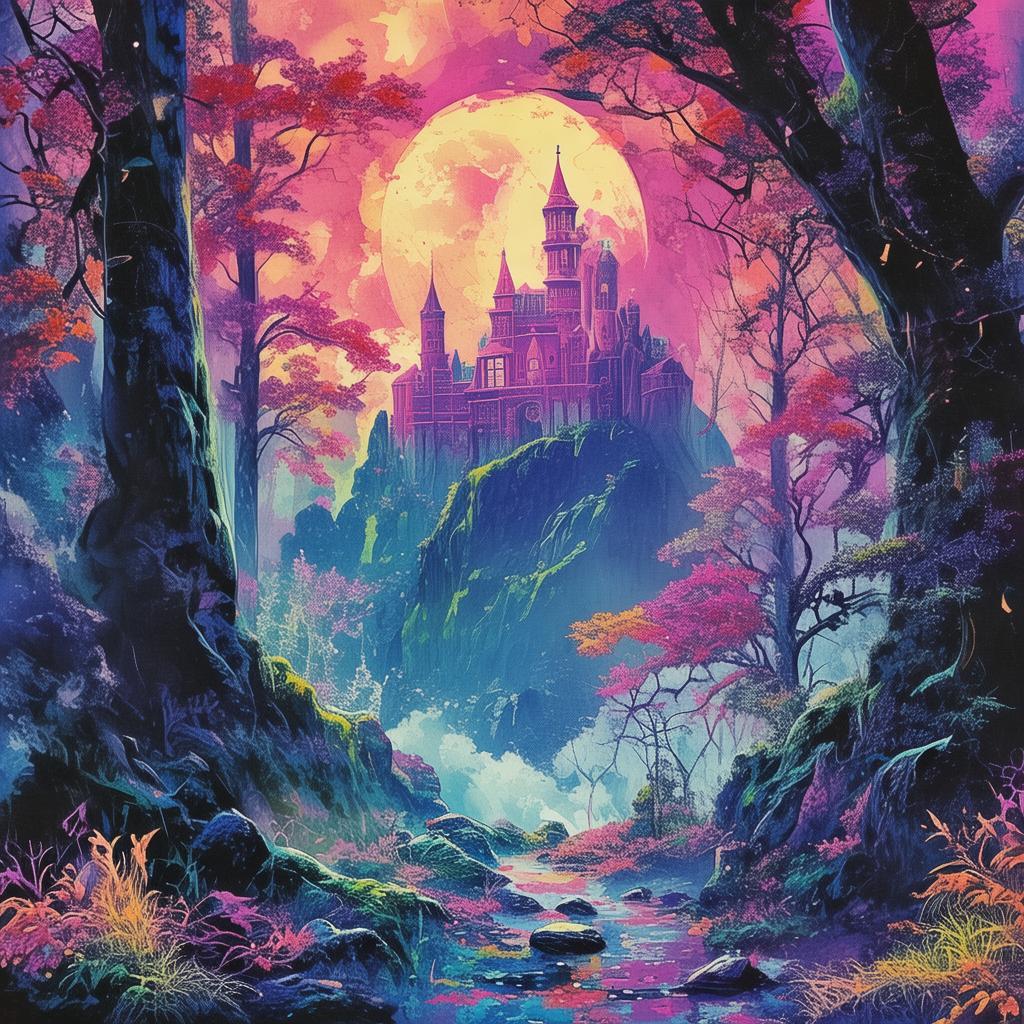
Kael needed Elara's help. His mother was ill, and he needed the currency of dreams to pay for her treatment. Elara, moved by his plight, agreed to help. She wove a dream for Kael, a dream that would bring him wealth beyond his wildest dreams. But as the dream took shape, Elara felt a pang of guilt. She knew that the dream was not her own, and that it would only serve to further entrench the city in its current state.
The next day, as Elara was preparing to deliver the dream to Kael, she received a message from the elders. The Dreamweaver's Thread was failing, and the city's fate was hanging in the balance. Elara had to choose between her own dream and the dream of the city. She had to choose between the future she wanted and the future that was being woven for her.
In a moment of profound clarity, Elara realized that the true power of the Dreamweaver lay not in the dreams she wove, but in the hearts of the people. She knew that she could not change the course of the city's destiny alone. She needed the help of the people, the strength of their dreams, and the courage of their hearts.
Elara left the Dreamweaver's Tower and walked the streets of the Dystopian City. She spoke to the people, shared her vision, and asked for their help. At first, they were skeptical, but as she spoke, their hearts began to open, and they saw the possibility of a new future. Together, they wove a new dream, a dream that was not just for the city, but for all of humanity.
As the new dream took shape, the Dystopian City began to change. The skies cleared, the streets were filled with laughter, and the people were free. Elara had done it. She had changed the course of the city's destiny, not through her own power, but through the collective will of the people.
Elara returned to the Dreamweaver's Tower, her heart heavy with the realization of the sacrifices she had made. She had given up her own dream, her own vision of the future, to weave a dream for the city. But as she looked out over the city, she knew that she had made the right choice.
The Dreamweaver's Thread had not been fraying; it had been strengthening, woven with the threads of hope and love that had been passed down through generations. Elara had not just changed the fate of the Dystopian City; she had become the dreamer of dreams, the keeper of hope, and the weaver of the future.
✨ Original Statement ✨
All articles published on this website (including but not limited to text, images, videos, and other content) are original or authorized for reposting and are protected by relevant laws. Without the explicit written permission of this website, no individual or organization may copy, modify, repost, or use the content for commercial purposes.
If you need to quote or cooperate, please contact this site for authorization. We reserve the right to pursue legal responsibility for any unauthorized use.
Hereby declared.
